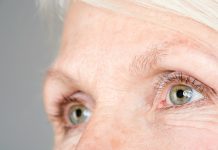
In a study from National Taiwan University Hospital, scientists found narrowed arteries in the neck – a major risk factor for stroke – may be detected by analyzing smartphone video that picks up the motion of blood flowing just beneath the skin.
The research may be useful in developing a non-invasive, early screening tool for detecting blockages in the carotid arteries that can lead to strokes.
Between 2% and 5% of strokes each year occur in people with no symptoms, so better and earlier detection of stroke risk is needed.
The carotid arteries, found in the neck, can become blocked by a buildup of fatty deposits known as plaque.
That condition – carotid artery stenosis – restricts blood flow to the brain and may lead to an ischemic stroke. Nearly 87% of all strokes in the U.S. are this type of stroke.
The carotid artery is just below the skin’s surface. When velocity and blood flow patterns change, those changes are reflected in the motion of the overlying skin.
However, those differences cannot be detected by the naked eye.
In the study, researchers used motion magnification and pixel analysis to detect subtle changes in pulse characteristics on the skin’s surface captured in 30-second smartphone video recordings.
While recordings were being made, participants lay on their backs with their heads tilted back in a custom-made box that restricted movement.
Among participants, 54% had previously been diagnosed with a blockage of 50% or more in the carotid artery.
The phone videos were 87% accurate in predicting who had a blockage in the artery. Narrowing in the arteries was confirmed using a Doppler ultrasound test.
The team says further research could determine whether it is possible to take recordings and perform the motion analysis remotely, in conjunction with a downloadable app.
More research is needed to determine whether video recorded on smartphones is a promising approach to help expedite and increase stroke screening.
If you care about stroke, please read studies about how to prevent heart attack and stroke, and drinking coffee this way may prevent heart disease, stroke.
For more information about stroke, please see recent studies about new way to prevent recurrent stroke, and results showing this blood thinner drug plus aspirin could strongly reduce stroke risk.
The study was conducted by Dr. Hsien-Li Kao et al and published in the Journal of the American Heart Association.
Copyright © 2022 Knowridge Science Report. All rights reserved.



